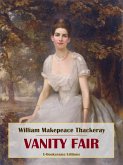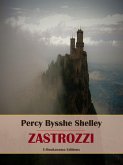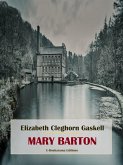"Nightmare Abbey", like "Frankenstein", appeared in 1818. Strangely, it was also inspired by Shelley, who was friends with Peacock. His satire, however, was lighthearted and whimsical and a kind of in-joke. There's no way of knowing if Peacock had actually read Mary Shelley's novel, but "Nightmare Abbey" makes a nice counterpoint, and speaks of the importance of a new audience.
In Peacock´s best-known work, "Nightmare Abbey", romantic melancholy is satirised. The novel is set in a former abbey whose owner, Christopher Glowry, is host to visitors who enjoy his hospitality and engage in endless debate. Among these guests are figures recognisable to Peacock's contemporaries, including characters based on Lord Byron and Samuel Taylor Coleridge. Mr. Glowry's son Scythrop (also modelled on a famous Romantic, Peacock's friend Percy Bysshe Shelley) locks himself up in a tower where he reads German tragedies and transcendental philosophy and develops a "passion for reforming the world." Disappointed in love, a sorrowful Scythrop decides the only thing to do is to commit suicide, but circumstances persuade him to instead follow his father in a love of misanthropy and Madeira. In addition to satire and comic romance, "Nightmare Abbey" presents a biting critique of the texts we view as central to British romanticism.
The great pleasure of "Nightmare Abbey", lies in the delight the author takes in poking fun at the romantic movement.
In Peacock´s best-known work, "Nightmare Abbey", romantic melancholy is satirised. The novel is set in a former abbey whose owner, Christopher Glowry, is host to visitors who enjoy his hospitality and engage in endless debate. Among these guests are figures recognisable to Peacock's contemporaries, including characters based on Lord Byron and Samuel Taylor Coleridge. Mr. Glowry's son Scythrop (also modelled on a famous Romantic, Peacock's friend Percy Bysshe Shelley) locks himself up in a tower where he reads German tragedies and transcendental philosophy and develops a "passion for reforming the world." Disappointed in love, a sorrowful Scythrop decides the only thing to do is to commit suicide, but circumstances persuade him to instead follow his father in a love of misanthropy and Madeira. In addition to satire and comic romance, "Nightmare Abbey" presents a biting critique of the texts we view as central to British romanticism.
The great pleasure of "Nightmare Abbey", lies in the delight the author takes in poking fun at the romantic movement.









